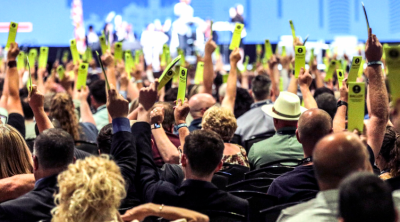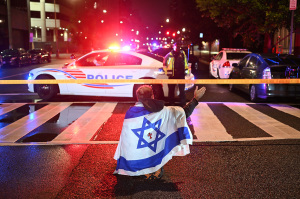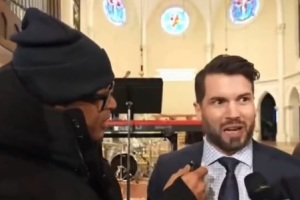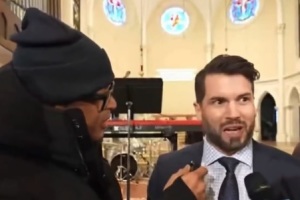Southern Baptists: Where do we go from here?

Yes, I have read the Sexual Abuse Task Force Report (SATF). I read all 285 pages last Sunday night. It made me physically nauseous, in spite of the fact that I have been accused of having a “cast iron” stomach.
As I experienced that wave of nausea, I was reminded of Billy Graham’s reaction to reading the Watergate Nixon tapes and discovering that President Nixon was not who he thought he was. Dr. Graham has confided that he was physically sickened to the point of nausea. Now I understand Billy Graham’s response much more personally.
As I explained in a previous Christian Post column, the Southern Baptist Convention (SBC) in a very real sense is my “spiritual home,” thus the use of “we” in this column’s title.
I was shocked to read of the extent of reported sexual abuse which at least some of the SBC Executive Committee senior staff and trustee officers were aware was taking place in our churches and institutions. I worked in the SBC headquarters building (2 floors below the Executive Committee Offices) from 1988 to 2013 as president of the SBC’s Ethics & Religious Liberty Commission (ERLC).
I knew that there were a few reports of sexual abuse, but I was unaware of the level of reported abuse. The SATF Report tells us I was not alone.
“Our investigation revealed that for many years, a few senior EC leaders, along with outside counsel, largely controlled the EC’s response to these reports of abuse. They closely guarded information about abuse allegations and lawsuits, which were not shared with EC Trustees, and were singularly focused on avoiding liability for the SBC to the exclusion of other considerations” (SATF).
In other words, this crucial information was not shared with the vast majority of the duly Convention-elected Executive Committee Trustees. I am certain that had this information been shared with the full Board, they would have been shocked and would have demanded a stronger and much more sympathetic reaction, and much more quickly than what transpired.
I believe fervently in the SBC “trustee system” whereby the SBC elects trustees (at least 1/3 of which must be lay people and 1/3 which must be clergy on an ongoing basis) to direct and superintend the ongoing ministries of each SBC national entity. For the trustee system to work, however, the trustees have to be kept fully informed by the entity staff so that they may give proper oversight and direction.
One of the greatest compliments I received during my entire 25-year tenure at the ERLC was given to me in my second year as the Commission’s president. At the conclusion of our annual meeting, one of my new trustees thanked me for all the information they had been furnished prior to the meeting, expanded by staff reports during the trustee meeting. The new trustee said, “I was a trustee at (he then referenced one of our six Southern Baptist seminaries) for seven years, and I received more information about the work of the ERLC in one meeting than I received from the seminary in my entire seven-year term of service!”
That is how the system is supposed to work. The trustees elect the entity head and generally approve, and are supposed to monitor and superintend, the ongoing work. Obviously, in the case of the Executive Committee, this did not happen.
To me, and I believe for the vast majority of Southern Baptists, the most grievous thing revealed in the SBTF Report is the fact that the Executive Committee’s suppression of the suspected sexual abuse of which they were aware resulted in significant numbers of unsuspecting churches unknowingly employing sexual predators in roles of sacred trust as ministers and church staff which allowed them to prey upon unsuspecting women and children in those churches. Just writing the previous sentence causes my heartache and anguish.
Any and all reforms recommended and ultimately adopted by the Convention must be made with this primary concern front and center: “How do we best protect the innocent from abuse while they are in the pastoral care of Southern Baptists and how do we best minister redemptively to those who have been abused?”
I understand the argument of the Executive Committee’s lawyers that the Convention needed to be protected from potential liability for the actions of people in churches over which they have virtually no functional control. In this extremely litigious society in which we live, lawyers protect people’s vital interests.
However, as followers of Jesus, we must always remember that there is often a vast difference between what is merely legally prudent and what is morally right. When as Christians individually, or in churches and denominations collectively, we must choose one over the other, our allegiance to Jesus must always impel us to make the morally right decision. When we ask ourselves, “What would Jesus do?” we will always make the right decisions.
Now, concerning the question of the SBC’s polity. Each church owns its own property, ordains its own ministers, calls its own pastors, and as a church decides how involved they will be in Southern Baptist life and to what degree they will financially support Southern Baptist causes.
All organization in Southern Baptist life is horizontal, which means there is no hierarchy.
Each local association of churches decides which churches are eligible for membership in the local association and which are not. Similarly, each state convention, independently of the local association, decides which churches are to be members and which are not. The same thing is true at the national level. The SBC membership is made up of cooperating churches, not individual Southern Baptists.
The only authority that the SBC has over a local church is that they can, should, and have, removed churches from membership in the SBC, which is their right, when they conclude that a church has departed from Southern Baptist doctrine or they are engaging in practices which are a departure from sound Christian practices. The beefing up and expanded profile given to the Credentials Committee was an initial attempt by the SBC to move more firmly in that direction.
Each of the SBTF Report recommendations should be carefully considered by the Executive Committee and by the SBC at this year’s Convention in Anaheim in June and in the months that follow.
Just this week the Executive Committee has set up a sex abuse hotline for victims to call and has announced that it will release the names of the accused sex abusers on their lists. That is a good start, but there is much left to do, starting with all Southern Baptists asking themselves and their Savior, “What more could I have done? What more should I have done?”
I have asked the Lord and myself those questions and I am still processing some of the answers and how I could have done more.
I do know that Southern Baptists all across America (I have heard from scores of them) lament what the scandal has brought to our denomination and far more importantly, to the Gospel of our Savior.
In closing, I have two observations and suggestions in relation to the SBTF Report “Recommendations.”
First, concerning the staffing recommendations, I believe the SBC and all concerned would be best served by having credentialed and qualified women experts in the field of sex abuse to staff one or more of the major new positions. I believe it would greatly facilitate matters and would make abuse victims more comfortable reporting their abuse.
Second, concerning Recommendation EC-15 “Acknowledging the Survivors of SBC Clergy Sexual Abuse:”
15(a) Written Apology: We recommend that the SBC EC leadership and the SBC President issue a sincere written and spoken apology for past failures, identify specific survivors such as Christa Brown, Jules Woodson, Tiffany Thigpen and others. The apology should include details as to how the SBC EC will work to support survivors and to assist churches to become safer spaces.
15(b) Memorial: We recommend consideration of a formal and permanent acknowledgment at the front of the SBC offices in Nashville relating to sexual abuse. Specifically, the SBC EC should consider a tangible gesture such as sculpture or garden as a way to publicly acknowledge mistakes in the past and the SBC’s commitment to reform.”
While I believe an apology of the nature recommended would be helpful and restorative, I do have a major concern about Recommendation 15(b). While I have no problem with an appropriate memorial “such as a sculpture or garden as a way to publicly acknowledge mistakes in the past and the SBC’s commitment to reform,” it would be inappropriate to establish such a memorial before we first erect an appropriate memorial to the millions of our African American brothers and sisters so terribly abused by multitudes of Southern Baptists during slavery, segregation, and beyond.
Otherwise, we risk neglecting or passively disrespecting those abuses. We have already issued an apology for the SBC having supported slavery, segregation, and racism in the past and pledged our commitment to doing better in the future in our 1995 “Racial Reconciliation Resolution.” Now is the time to construct an appropriate memorial for our repentance of that terrible sin before we erect any other memorials.
Dr. Richard Land, BA (Princeton, magna cum laude); D.Phil. (Oxford); Th.M (New Orleans Seminary). Dr. Land served as President of Southern Evangelical Seminary from July 2013 until July 2021. Upon his retirement, he was honored as President Emeritus and he continues to serve as an Adjunct Professor of Theology & Ethics. Dr. Land previously served as President of the Southern Baptist Convention's Ethics & Religious Liberty Commission (1988-2013) where he was also honored as President Emeritus upon his retirement. Dr. Land has also served as an Executive Editor and columnist for The Christian Post since 2011.
Dr. Land explores many timely and critical topics in his daily radio feature, “Bringing Every Thought Captive,” and in his weekly column for CP.


























